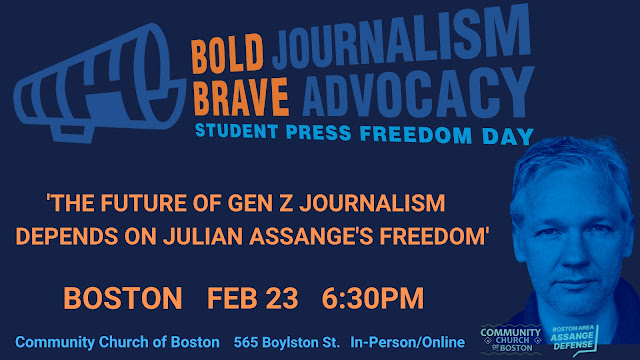Malaysian courts have been wrestling with the big bear of foreign sovereign immunity in an ursa minor case arising from the dismissal of a security guard from the U.S. Embassy in Kuala Lumpur.
As a torts and comparative law teacher, I'm interested in how courts manage foreign sovereign immunity. But most of the cases I read are about foreign-state respondents in U.S. courts. I suppose the inverse, the United States as respondent in a foreign court, happens often. But it doesn't often make my newsfeed.
Well, this story did. The shoe is on the other foot with the United States seeking to evade the hearing of an employment grievance in Malaysian courts.
Consistently with international norms, in the United States, the Foreign Sovereign Immunities Act (FSIA) (on this blog) generally codifies sovereign immunity for foreign states in U.S. courts. But an exception pertains for "commercial activity."
The commercial exception, also consistent with international norms, only makes sense. When a foreign country is acting like any other commercial actor, say, buying toilet paper for the mission restroom, it should not be able to claim sovereign immunity to override its obligation to pay for the toilet paper (contract), nor to escape liability for its fraud in the transaction (tort). Sovereign immunity is rather reserved for when a state acts as a state, doing things only states can do, such as signing treaties and, however unfortunately, waging war—usually.
The exception is easier understood in the abstract than in application. In a case bouncing around the Second Circuit, and reaching the U.S. Supreme Court in 2018 on a related but different question, Chinese vitamin makers claim immunity from U.S. antitrust law. The respondent makers say that they are agents of the Chinese state insofar as they are compelled by Chinese economic regulations to fix prices. U.S. competitors see the cut-rate pricing as none other than anti-competitive commercial activity. The question arises under trade treaty, but the problem is analogous to the FSIA distinction.
Also regarding China, the commercial activity exception was one of the ways that state lawsuits against the People's Republic over the coronavirus pandemic tried to thread the needle on sovereign immunity. In the lawsuit filed in 2020 by the State of Missouri against the PRC filed in 2020, the Missouri Attorney General characterized the Chinese lab in Wuhan as a commercial healthcare enterprise. The district court disagreed in July, and the AG is appealing.
In the Malaysian case, according to the allegations, the U.S. Embassy gave no reason when it terminated a security guard in 2008 after about a decade's service. The security guard probably would not be owed any explanation under U.S. law. But the Malaysian Industrial Relations Act is not so permissive, authorizing complaints to the labor authority upon dismissal "without just cause or excuse."
The opinion of the Malaysian Court of Appeal in the case hints at some bad blood in the workplace and a bad taste left in the mouth of the dismissed guard: "He said he had been victimised by another staff named Rama who had tried
to tarnish his good record as he had raised the matter of unreasonable
management of the security post.... He said he could not believe that the US Embassy that is
recognised the world over as the champion of human rights could have
done this to a security guard like him."
Inexplicably, "a long languishing silence lasting some 10 years" followed the administrative complaint, the Court of Appeal observed. "Nobody involved and interested in this case heard anything from anyone.
It is always difficult to interpret silence. That silence was broken
with a letter from the DGIR [labor authority] calling for a conciliation meeting [in] September 2018.... There was no settlement reached.
"Unbeknown to the workman, the Embassy had [in] March 2019 sent a
representation to the DGIR arguing that sovereign immunity applied and
that the matter should not be referred at all to the Industrial Court." The United States thereafter succeeded in having the case removed to the Malaysian high court, a general-jurisdiction trial court.
The high court dismissed the case on grounds of U.S. foreign sovereign immunity. The Court of Appeal reversed, holding that the case should not have been removed. The Court of Appeal remanded to the Industrial Court, a specialized labor court, to take evidence on the immunity question. The Malaysian Federal Court recently affirmed the remand, lawyers of Gan Partnership in Kuala Lumpur have reported (Lexology subscription).
Like the FSIA, Malaysian law on foreign sovereign immunity distinguishes commercial activity, jure gestionis, from state action, jure imperii. The dismissed guard argues that his was a simple employment contract, so the United States was acting in a commercial capacity and is not entitled to sovereign immunity. The United States argues that the security of its embassy is a diplomatic matter entitled to the exercise of sovereign discretion.
The case in the Court of Appeal was Letchimanan v. United States (May 18, 2021). Gan Khong Aik and Lee (Ashley) Sze Ching reported the Federal Court affirmance to the International Law Section of the American Bar Association for Lexology on August 30 (subscription). Khong Aik and Sze Ching wrote about the Court of Appeal decision, United States v. Menteri Sumber Manusia (Minister of Human Resources) Malaysia, in July 2021 (Lexology subscription), and with Foo Yuen Wah, they wrote about the high court decision in August 2020 (Lexology subscription).







